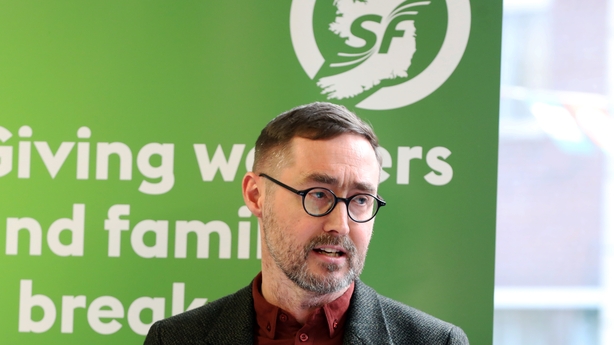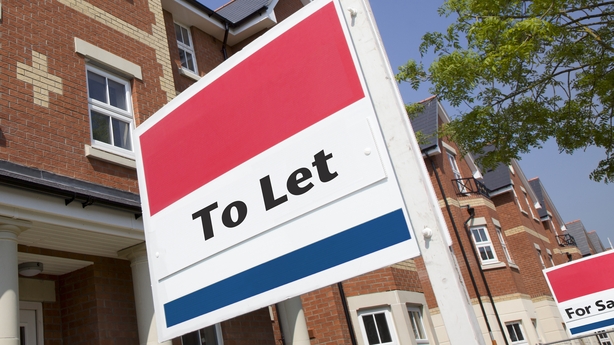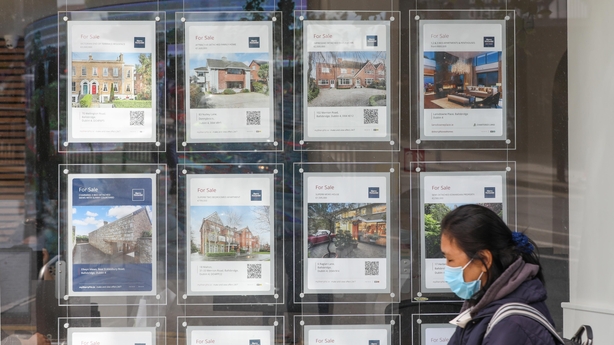Two weeks ago, late in the evening during Dáil questions on housing, a potentially consequential moment edged its way to the surface.
In the midst of a joust between Housing Minister Darragh O'Brien and the ever-assiduous Sinn Féin spokesperson, Eoin Ó Broin, an unlikely topic was referenced.
The possibility of accidental landlords paying less tax in the future was floated politically.
"We have repeatedly called for tax reform for landlords. It is not acceptable that Real Estate Investment Trusts (REITs) and large institutional landlords pay no tax, whereas many accidental and semi-permanent landlords pay very high rates," Eoin Ó Broin told the House.
The Housing Minister accused Sinn Féin, through its pre-budget submission, of wanting to "impose a €400 tax on the mom-and-pop landlords" while at the same time bemoaning their loss to the rental sector.
Away from the fractious tone of this exchange there is surprisingly more consensus on the matter than is evident at first.
Sinn Féin wants the Residential Tenancies Board (RTB) and the Housing Agency to come up with a strategy that would have the backing of "Government and Opposition" to stop the disorderly exit of landlords from the sector.
The party believes that any plan on this front would have to radically overhaul and limit the grounds for evictions.
This would form a central part of the efforts to enable tenancies to span decades.
The average duration of tenancies currently stands at three and-a-half years.

Significantly, the Government’s Housing for All plan commits to reviewing the tax treatment of landlords this year to ensure continuing investment in the rental sector.
This is scheduled to take place in the third quarter of the year and any agreed changes would be included in the Budget in October.
Between 2016 and 2020 it is estimated that 20,000 accidental landlords sold their properties once they shuck off the lingering negative equity triggered by the economic crash of over a decade ago.
Further analysis of last year’s figures is expected to show that between 5,000 and 7,000 more properties were withdrawn from the rental market in 2021.
Interestingly, a survey by the RTB found that while 88% of small landlords have a positive experience with tenants, 26% of them still intend to sell a rental property in the next five years.
The question for politicians then is whether there is any way to convince this group to continue to supply much needed rental homes.
A tax break is seen as the most obvious way to stem the exodus given that some are paying tax at the marginal rate.
That said they can claim certain expenses against their rental income including: mortgage interest, insurance, maintenance, repairs along with management and accountancy fees.
Indeed, the total amount of allowable expenses claimed by landlords of residential properties in 2018 was €1.140 billion.
A total of €3.043 billion was declared residential rental income to Revenue that year.
Those figures coupled with rising rents have led one political party to form a very clear view.

People Before Profit don’t see any circumstances in which there could be further tax benefits for any landlords.
However, other parties take a more nuanced approach.
The Social Democrats Housing spokesperson Cian O’Callaghan wants a few things to happen and chief among them is the ending of the favourable tax treatment of large investment funds.
The Dublin Bay North TD also believes it is unfair that large institutional landlords pay very little tax while the owners or one or two properties pay very high rates.
"Any reform of taxation for landlords must be linked to improvements in security of tenure for tenants and measures to improve the affordability of rents," he said.
Labour’s Finance Spokesperson Ged Nash takes a harder line on the question of taxation for accidental landlords.
"There isn’t clear and robust evidence to back up claims that taxation is an issue for landlords exiting the market. Labour’s focus is on the unfair rules of eviction rather than on tax breaks for landlords," he said.
While Aontú’s primary target in this area is contained in a piece of legislation the party has tabled in the Dáil entitled the Finance Real Estate Investment Trust Bill.
It is seeking to delete the tax "privileges" of the REITs and to end the competitive advantage this gives those investors over first-time buyers and local landlords.
But there is another view in Leinster House which seeks to unite the many strands of the Opposition’s thinking on this matter.

Independent TD and former Environment Minister Denis Naughten believes there is a precedent at hand that would offer tenants greater security and a reduced tax bill for smaller landlords.
He points to the situation in agriculture in the 1990s when the vast majority of farm leases were for 11 months.
Today, half of all agriculture land leases are for five years or longer and some run to 15 years after "the taxation system was reformed to incentivise long-term leasing of land for the common good".
Denis Naughten is adamant that the same approach to residential properties would transform the rental sector.
"I am talking about landlords with one or maybe two homes. There could be an incentive put in place for them whereby they would lease a home to a family for five, ten or 15 years," he said.
But despite making detailed submissions on this policy proposal in both the Dáil and at Committee level, it hasn’t progressed thus far.
The Finance Minister Paschal Donohoe previously said the challenge posed by such a proposal is that "tax support" for new tenancies would have to be matched by support for existing ones.
He warned the "cost consequences" of doing so would be significant.
It will become clear later in the autumn if the rental crisis, and the subtle yet significant modification of political thinking on this fraught question, sparks change this year.







